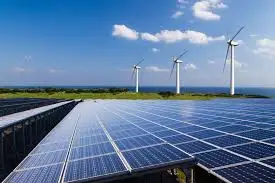
Introduction
Climate change is one of the most pressing issues facing the world today. In the United States, the impacts of climate change are increasingly visible and have become a major concern for both policymakers and the general public. This blog explores the causes, effects, and potential solutions to climate change from a U.S. perspective, highlighting the role of government, businesses, and individuals in addressing this global challenge.
What is Climate Change?
Climate change refers to significant changes in global temperatures and weather patterns over time. While climate change is a natural phenomenon, scientific evidence overwhelmingly shows that human activities, particularly the burning of fossil fuels, have accelerated the process. This has led to an increase in greenhouse gases (GHGs) such as carbon dioxide (CO2), methane (CH4), and nitrous oxide (N2O) in the atmosphere, which trap heat and result in global warming.
The United States is already experiencing a variety of climate-related changes, including:

- Extreme Weather Events: The frequency and intensity of extreme weather events, such as hurricanes, wildfires, and heatwaves, have increased. States like California have seen devastating wildfires, while coastal regions are increasingly vulnerable to hurricanes and flooding due to rising sea levels.
- Rising Sea Levels: Coastal cities like Miami and New York are at risk from rising sea levels. This not only threatens homes and infrastructure but also has economic implications, particularly for real estate and tourism industries.
- Agricultural Disruption: Climate change is impacting U.S. agriculture, with changing weather patterns affecting crop yields. Regions that were once fertile are now experiencing droughts, while others face unseasonal frosts, impacting the food supply chain.
- Health Risks: The spread of diseases such as Lyme disease and West Nile virus is on the rise as warmer temperatures allow these diseases to spread to new areas. Additionally, extreme heat events pose direct health risks, particularly to vulnerable populations like the elderly.
The Role of Policy and Regulation
In response to the growing threat of climate change, the U.S. government has implemented various policies aimed at reducing greenhouse gas emissions and promoting sustainability. Key initiatives include:
- The Paris Agreement: The U.S. rejoined the Paris Agreement in 2021, committing to reduce GHG emissions and work with other nations to limit global temperature rise to below 2 degrees Celsius above pre-industrial levels.
- Clean Energy Transition: Federal and state governments are investing in renewable energy sources such as wind, solar, and hydropower. The goal is to reduce dependence on fossil fuels and transition to a clean energy economy.
- Regulatory Measures: The Environmental Protection Agency (EPA) has set regulations to limit emissions from power plants, vehicles, and other industrial sources. These regulations are crucial in curbing pollution and promoting cleaner technologies.

The Role of Businesses and Innovation
Businesses in the U.S. play a crucial role in combating climate change. Many companies are adopting sustainable practices and investing in green technologies. Key areas of focus include:
- Corporate Sustainability: Companies are increasingly integrating sustainability into their business models, from reducing carbon footprints to adopting circular economy principles.
- Innovation in Clean Technology: The U.S. is a leader in clean tech innovation, with advancements in electric vehicles, energy-efficient appliances, and carbon capture technologies.
- Climate Risk Management: Businesses are recognizing the financial risks associated with climate change and are adopting strategies to mitigate these risks. This includes investing in climate resilience and ensuring supply chain sustainability.
Individual Action: What Can You Do?
While government policies and business initiatives are crucial, individual actions also play a significant role in addressing climate change. Here’s what you can do:
- Reduce Your Carbon Footprint: Simple actions like using energy-efficient appliances, reducing water waste, and opting for public transportation can make a difference.
- Support Renewable Energy: Consider switching to renewable energy sources for your home. Many utility companies offer options for solar or wind energy.
- Advocate for Change: Support policies and leaders who prioritize climate action. Engaging in community efforts and raising awareness about climate issues can amplify the impact.
- Educate Yourself and Others: Staying informed about climate science and sharing knowledge with others can help build a more climate-conscious society.
Climate Crisis – United States Department of State
For more Blogs: http://e-itmarket.com


